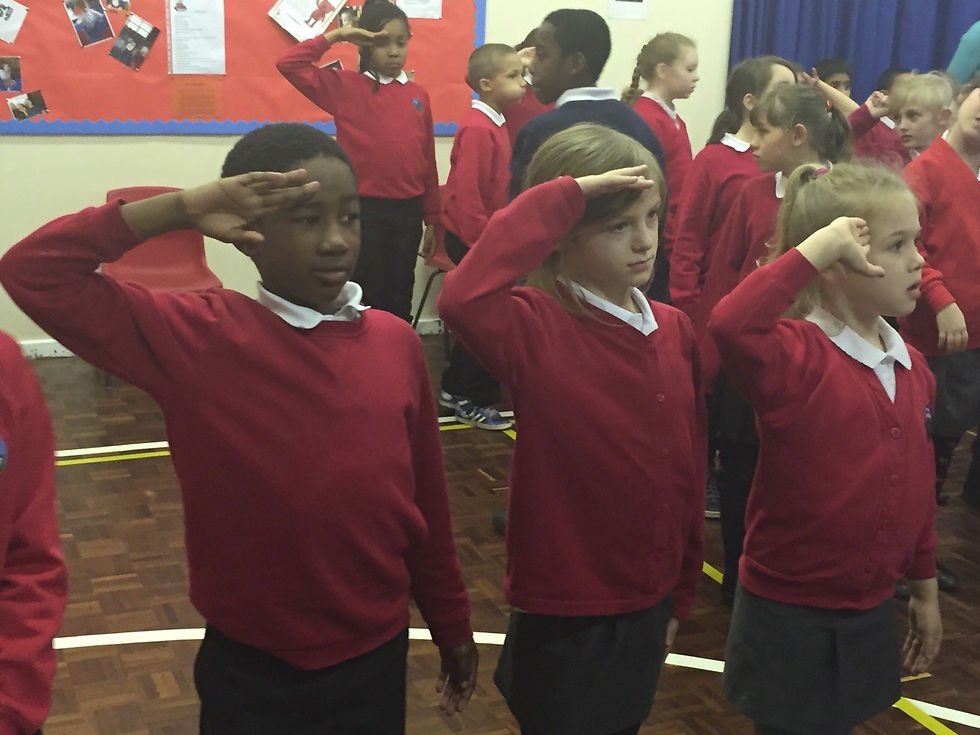Music and museums: #unboring!
- Bryony Morrison
- Dec 26, 2015
- 3 min read

The centenary of the First World War gave The Stringcredibles the opportunity to create a new type of concert performance which takes young audiences on a fast paced historical journey from 1914 to 1918.
We chose to perform as part of museum exhibitions, eager to explore the impact this might have on the experiences of our audiences and on their perceptions of music and museums. Our formal aims were to:
Engage new young audiences with live performance, arts and our cultural heritage;
Use creativity to make the lessons of the First World War meaningful and unforgettable;
Follow the advice of Birmingham Cultural Partnerships report (Identifying the Barriers to
Cultural Participation and the Needs of Residents of Birmingham, March 2010 ) and to
support greater equality in access to culture.
In 2014 Tunes from the Trenches was generously supported by Arts Council England, through an award from the National Lottery funded Grants for the Arts scheme. This facilitated:
22 educational performances in 11 Marches Network museums.
Several offshoots including visits to the Library of Birmingham and local schools.
A total audience of 2000 school children and families.
In 2015 The Stringcredibles partnered with The Barber Institute of Fine Arts at the University of Birmingham to give three more performances for audiences of school children and their teachers.
What was the impact of the project?
1. We brought live music to new audiences! Children who have never been inside a concert hall or seen instruments up close got the chance to watch a string quartet perform.
‘My favourite part of the show was the music.’
‘It’s better listening to music live.’
‘It’s better seeing it live than on TV.’
‘I had never heard a string quartet play before.’
2. We changed the way children think about classical music:
‘Music is great.’
'It's not boring.'
‘It’s really fun and cool.’
‘It’s funner than it seems.’
‘Olden kind of music is not that bad.’
‘Music is more than listening to things.’
3. We used music as a tool for learning:
‘You keep things in your head about it.'
‘Keep things in your head by making songs.’
‘Music isn’t just noise it is interesting.’
‘The music told me it was a hard time in WW1.'
4. We used music to explore the emotions of war. War is a difficult concept, but just as the story of war can help children to listen meaningfully to music, music itself can help children to access complex emotions.
‘Music makes you have different feelings.’
‘It calms me down.’
‘I liked the sad tune it nearly made me cry.’
‘It touches my heart.’
‘It can make you feel different.’
5. And, we changed the way children think about museums:
‘It made me think that museums are better than they are.’
‘Museums are normally boring but it was really exciting.’
‘It made me think of it as an interesting learning station with fun and emotion.’
‘It brought some of the artefacts to life. They had a different meaning after the show.’
‘It made me think that museums are more than meets the eye.’
‘I thought it was cool. I think it has changed the way I think about museums – I thought they were plain.’
‘It shows they can be fun!’

‘The Stringcredibles were amazing and it was so wonderful having them here. We put them in the gallery, great acoustics, so they were surrounded by contemporary craft and objects from the First World War… Everyone loved it and loved the fact that it was in the gallery. It was an honour to have them and it really enhanced our exhibition.’
The Marches Network







Comments